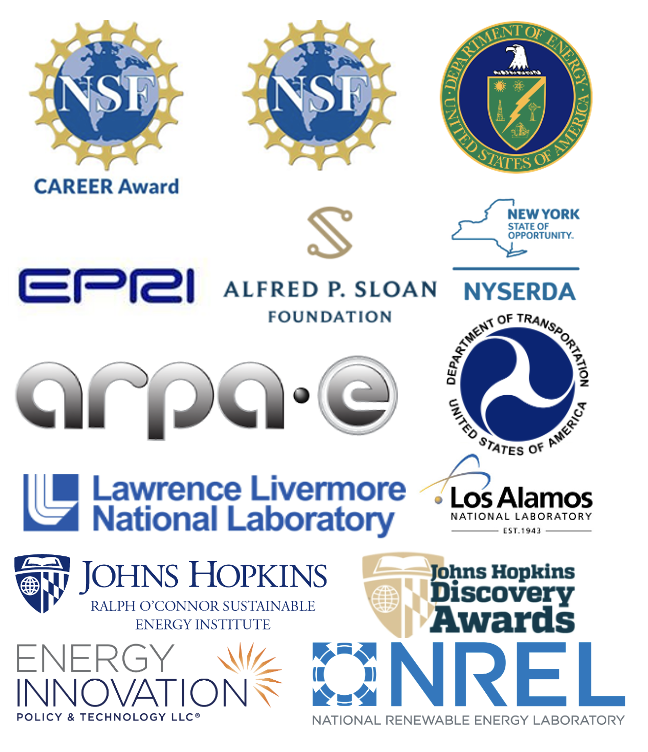Recent Announcements
- We have postdoc openings, please submit your application before Dec 15, 2025 here.
- We're looking to hire Ph.D. students to start in Fall 2026 to join our group.
- Cool News: I am on the organizing committee for a new power systems conference, PowerUp! Please consider submitting a paper or poster, or attending the conference in Boulder, Colorado in September 2026!
- We are excited to kick off the Fall 25 semester. We went to a cool Chinese place in Baltimore for dinner, but forgot to take a picture. Here is the 2024 photo. (Also, see the group photos from 2022 and 2023.)
- A few exciting papers or pre-prints from our group:
- Understanding supply chain constraints for the US clean energy transition
- Unlocking Transmission Flexibility under Uncertainty: Getting Dynamic Line Ratings into Electricity Markets
- Decision-Focused Learning for Complex System Identification: HVAC Management System Application
- Carbon Impact of Transmission Constraints
- We are excited for SEARCH's 2025 graduates Dr. Zhirui Liang (who is now a Schmidt AI in Science Postdoctoral Research Fellow at the University of Michigan and will be joining the University of Calgary as an assistant professor in 2026) and Qi Li (joined The University of Hong Kong as a Ph.D. student)!
SEARCH Group
Welcome to the web site of the Smart Energy reseARCH (SEARCH) group, which is part of Johns Hopkins University's Ralph O'Connor Sustainable Energy Institute (ROSEI).
Our objective is to reinforce economic efficiency, environmental responsibility, reliability, resiliency, and security of electric power and energy supply. Our work is inspired by our values.
Today, after the passing of the Bipartisan Infrastructure Law and Inflation Reduction Act, the importance of this work is evident as never before. Communities all over the United States, including Baltimore MD, suffer from constantly falling quality of electricity supply, rising electricity bills, and can barely deal with the devastating consequences of natural disasters that has been strongly amplified, in frequency and magnitude, by climate change. Motivated by these mounting challenges and their imminent threats to the well-being and prosperity of this nation and humanity, my team and I extend the known bounds of applied sciences to re-think and re-engineer power grid and energy infrastructure fundamentals and to design a more techno-economically and societally sustainable power grid, whatever the alternative may be.
Methodologically, our research focuses on mathematical modeling of power grids, jointly with other interdependent infrastructure systems, and the development and application of control, optimization, and system-theoretic methods for their operations and planning. The complexity of this research stems from the following two primary factors. First, dealing with the power grid and accurately representing its physics implies performing NP-hard computations over large-scale, hierarchical, multi-agent networks. Second, as power grids adopt more customer-end and renewable generation technologies it becomes more important to account for their inherent uncertainty and lower controllability, which in turn perplexes modeling and computational efforts and impedes capturing the economic value of emerging smart grid technologies. Taken together, these two factors stand in the way of the realistic analysis, understanding the limits of the current power grid infrastructure and what security margins it must have, which naturally leads to more operationally conservative, i.e. less cost-efficient and not necessarily more reliable, and wasteful practices. Methodological advances investigated by my group target these no longer tolerable practices to end them for good, whatever the cost may be.
We gratefully acknowledge our project sponsors and partners:


ydvorki1@jhu.edu
Ralph O'Connor Sustainable Energy Institute
Department of Civil and Systems Engineering
Department Electrical and Computer Engineering
Johns Hopkins University
Baltimore, MD